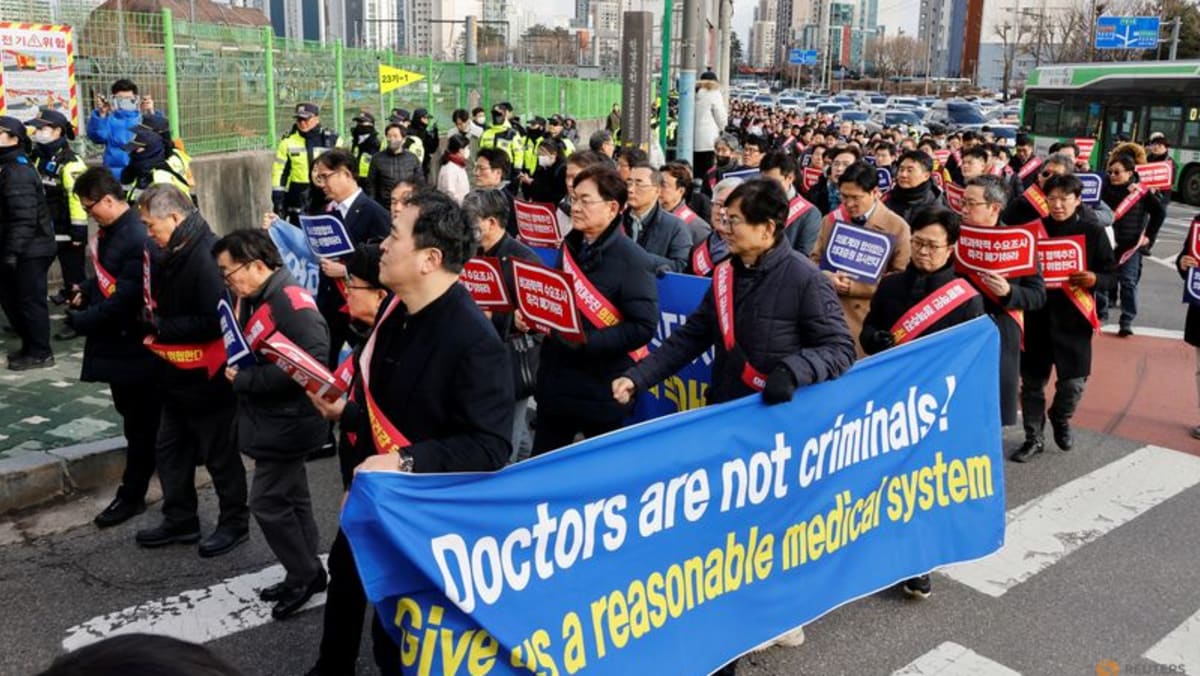SEOUL: Thousands of South Korean doctors protested on Sunday (Mar 3) in Seoul in an escalating standoff with the government over medical training reforms, which has seen junior doctors quit en masse, plunging hospitals into chaos.
Around 10,000 junior doctors quit and stopped working nearly two weeks ago to protest hikes to medical school admissions from next year meant to combat shortages and an ageing society.
The striking professionals have defied a Feb 29 government deadline for them to return to work or face legal action, including possible arrests or suspensions of their medical licenses.
The protestors wore black masks and waved signs saying: “We oppose the medical school admissions increase”.
“The government is pushing the reforms unilaterally and that the doctors can not accept under any circumstances”, Kim Taek-woo of the Korea Medical Association told the crowd of protestors.
“The government is very aware of the reasons why all doctors are opposing the increase in the medical school admissions but are exploiting policies to turn doctors into slaves forever”.
The mass work stoppage has taken a toll on hospitals, with crucial treatments and surgeries cancelled, prompting the government to raise its public health alert to the highest level.
Around half of the surgeries scheduled at some major hospitals have been cancelled since last week, according to the health ministry.
Under South Korean law, doctors are restricted from striking, and the government this week requested police investigate people connected to the stoppage.
While the return to work deadline has passed, the government would still “exercise utmost leniency for trainee doctors if they return to work by the end of today”, Interior Minister Lee Sang-min said on Sunday in a KBS television interview.
“But if they don’t come back by today, the government will have no choice but to act sternly in accordance with laws and principles.”
Lee reiterated the government’s commitment to its reform plans, saying even the 65 per cent increase in medical admissions “isn’t that large”, considering the importance of the healthcare sector.







